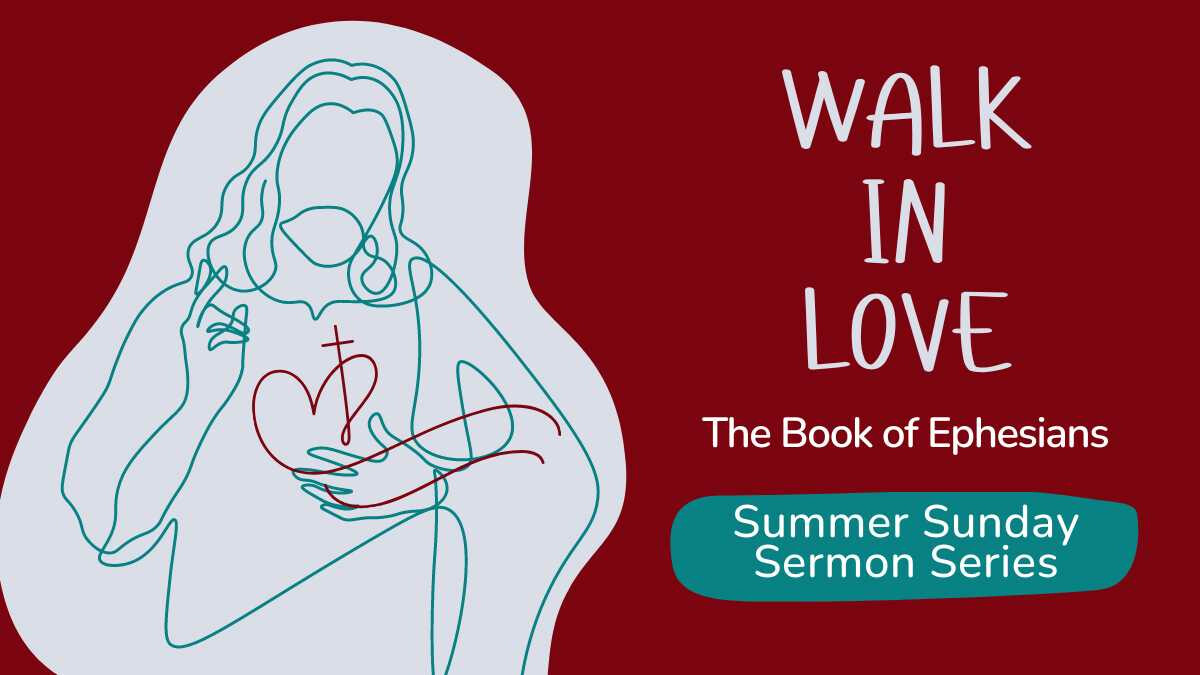
Day 5
“In Him we have redemption through His blood, the forgiveness of our trespasses, according to the riches of His grace which He lavished on us.” Ephesians 1:7-8
Redemption and Forgiveness through Him
The clause “in Him we have redemption through His blood” shifts our focus from the work of God the Father to the work of the Son in our salvation. In our culture, the word “redemption” often relates to financial transactions. A shopper at the grocery store may redeem a coupon in order to reduce the price of a product. In financial markets, bonds may be redeemed. The concept comes from the act of purchasing. Redemption means to purchase or to buy back. In the biblical material, this idea can be seen throughout. Joseph’s own brothers sold him into slavery by selling him to traveling traders. Joseph is redeemed by Potiphar which sets off a chain of events that leads to the entire family of Jacob resettling in Egypt. Israel became enslaved to the Egyptians and were grossly mistreated. God redeemed Israel from Egypt. Much as Joseph had been sold into slavery, God bought Joseph and all of his relatives from Egypt. Moses became the divine representative in this transaction. God purchased Israel out of slavery much as an individual might purchase a slave in those days. However, God’s purchase price was not with silver or gold, but He purchased Israel with His mighty powers. “I am the Lord, and I will bring you out from under the burdens of the Egyptians, and I will deliver you from their bondage. I will also redeem you with an outstretched arm and with great judgments.” (Exodus 6:6)
Centuries later Israel found a new bondage. Now, under a series of evil and idolatrous kings, the northern tribes fell under the heavy burden of the worship of false gods. Though it was a volitional choice by the nation, the enslavement completely dominated the nation. Despite the rebellion, God’s love was unrelenting. He portrayed His love for Israel in the redemption of Gomer, the wife of the prophet Hosea. Gomer followed her culture in the endless pursuit of pleasure and wealth through the idolatry of the surrounding nations. She functions as a microcosm of the entire nation. Her insatiable drive toward all things idolatrous ended in disaster, now enslaved as an analogy of sin’s sway over us all. Just as Gomer represented Israel, and by extension all of us, so Hosea now responded to Gomer as a depiction of God’s unrelenting love. God told Hosea to go to the slave auction and to redeem Gomer. Shocked by the request, Hosea struggled to comprehend God’s will. God explained through Hosea, that as Hosea had been brokenhearted over the betrayal by his wife, so God had been brokenhearted over Israel’s betrayal. However, despite the betrayal, God’s love remained. God offered to redeem Israel out of her idolatrous pursuits, to love her and to restore her. The act of redemption cost Hosea deeply. The emotionally spent prophet invites us to see the heart of God in His redemption of us.
Christ became the ultimate redemption price. In Christ, God the Father purchased us in order to restore us to the original intent. Adam and Eve, our representatives, walked with God in perfect fellowship. Sin entered the world and destroyed the creative design. However, God is greater than our failings. The price of our redemption from our bondage to sin comes at the highest imaginable price. Jesus Christ paid for our sin with His violent death on the cross. We have been redeemed “in His blood.” Unlike the liberation of Israel out of Egypt or the freedom brought to Gomer from the auction block, we have been freed from our sin forever. God offers to us complete forgiveness for our sins. This offer is not cheap for the price paid was the death of Jesus Christ. The depth of the price leads to the depth of the liberation. The forgiveness lasts forever. In Christ, we are forever freed from the sin that so easily entangled us.
The redemption price is “according to the riches of His grace.” Notice the distinction between “out of” versus “according to.” If a billionaire gave to you “out of” his/her riches, that would not communicate any specific amount. For instance, if a billionaire gave you a dollar, that dollar would be “out of” the riches of the billionaire, even though it would be a paltry amount in light of the wealth of the donor. If instead, a billionaire gave to you “according to” their riches, that would communicate an amount. Notices the distinction in this verse. God gives “according to the riches of His grace.” The gift is in proportion to the wealth of the giver. God, in His infinite grace, gave out of His infinite grace. No sin is too great for His mercy. No sinner is too far from His grace. Paul adds this vivid picture to punctuate the meaning. This grace has been “lavished on us.”
Suggested Prayer: God, You have redeemed us through the death of Your Son, Jesus Christ. All of our sins have been forgiven. You have lavished Your grace on us. We are overwhelmed by the knowledge that You have loved us so richly. We praise You.



Login To Leave Comment